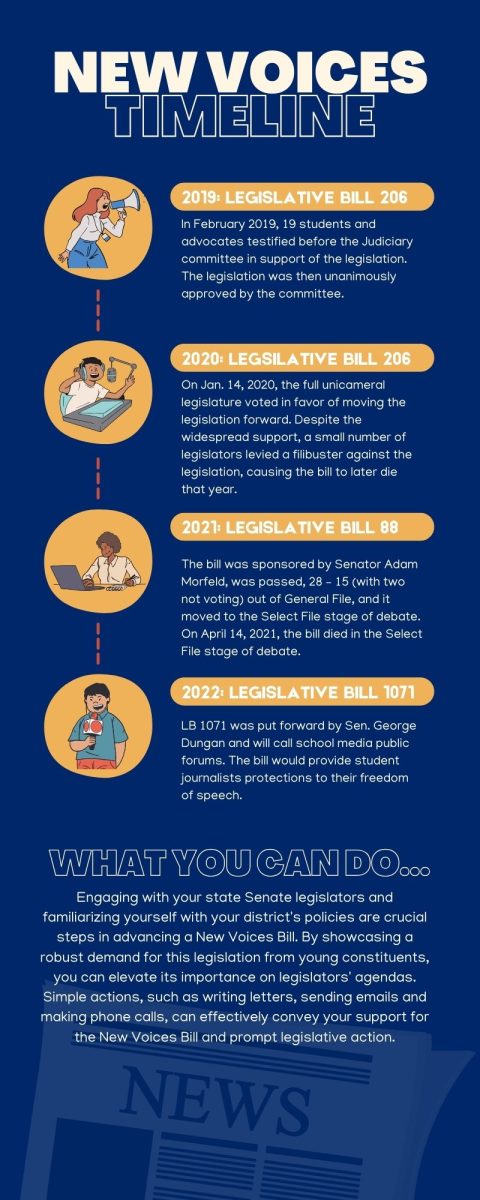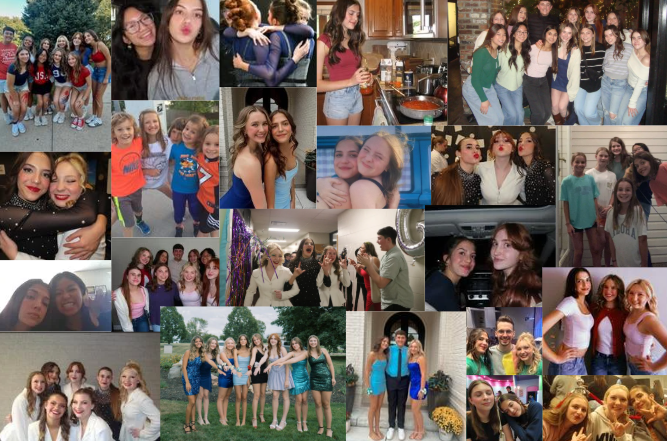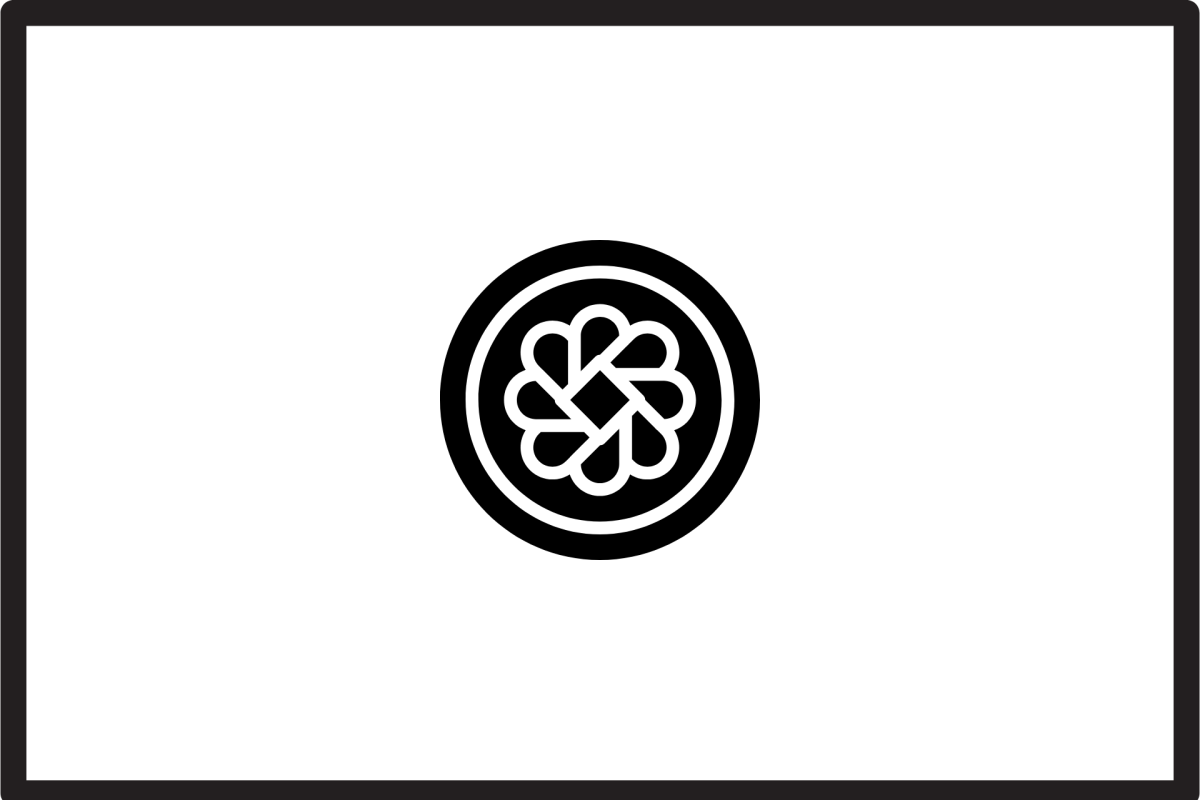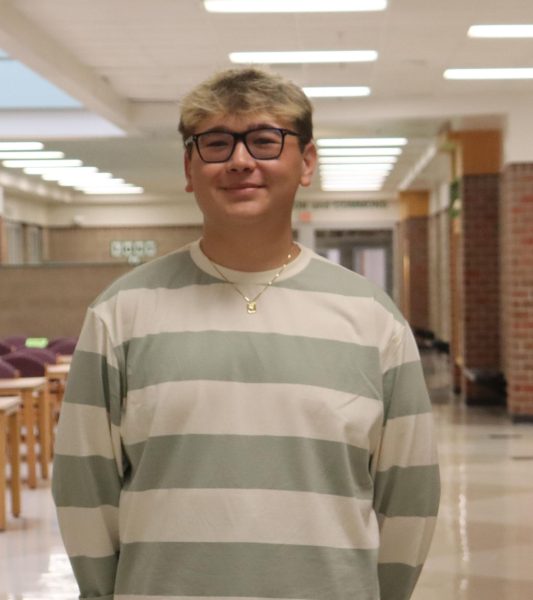As a student journalist, our role would serve no purpose without having the ability to have our voices heard. In high schools across the United States, student journalists are currently facing a critical battle for press freedom. The ability of student journalists to investigate, inform and express themselves is often hindered by censorship, posing significant challenges to the integrity of journalism education and the democratic principles it upholds. The detrimental impact of such censorship extends beyond the confines of school walls, affecting not only the education and development of student journalists, but also the broader societal understanding of the importance of a free and unfettered press. In navigating this landscape, it becomes imperative to recognize the fundamental rights at stake and the enduring consequences of burying student voices.
In 2023, the Legislative Bill 1071 was introduced in the Nebraska Legislature. The Legislative Bill ensures that the published work of high school and college journalists in Nebraska is protected from censorship. Commonly known as the “New Voices Law,” Legislative Bill 1071 has been adopted in 17 states across the country, with Nebraska being excluded from the group.
The Foundation for Individual Rights in Education (FIRE) found that “60% of student newspapers at four-year public institutions faced some form of censorship” in 2021. Recently Millard’s neighboring school district, Omaha Public Schools, planned on opposing Legislative Bill 1071; however, after a lengthy discussion, the school board decided on the position “monitor with research.” It seems as though the plague of censorship is continuing to loom closer and closer to our school. Just last year, Grand Island Northwest Public schools terminated its journalism program after its student journalists published an issue of the school paper with editorials relating to LGBTQ+ rights. After raising concern within the community, the school district brought the paper back, but later replaced the adviser.
As student journalists we bear the responsibility to cover a diverse audience that represents our readers. As storytellers we should feel empowered for sharing and showcasing underrepresented communities on campus, not subjugated. Whether it be racial injustice, LGTBQ+ rights or women’s rights it is essential these topics are covered in our publication as they showcase our readers and acknowledge vital topics going on in the real world.
According to StudentPressFreedom.org, “Often, school officials justify censorship by expressing concern that students should not be reporting on “adult” topics. The past year has shown us that the idea that students are “not mature enough” to cover controversial or sensitive issues is, and always has been, unfounded.”
The Catalyst newspaper staff is privileged to have supportive administrators who uphold freedom of expression in our classroom, refraining from censorship. However, this isn’t promised as new leadership or concerns from the community could strike an interest in provoking censorship at any moment. This environment empowers us as journalists, allowing us to articulate our opinions boldly. Thanks to this environment, we have tackled diverse topics, from the detrimental effects of book banning and censorship on LGBTQ+ youth to the issue of diversity within our student body and the pressing problem of gun violence.
The thought of our publication being subject to censorship is chilling. The mere idea of being unable to voice our opinions, raise awareness and accurately represent our community feels like a punch to the gut. It underscores the importance of safeguarding our freedom to express ourselves and fulfill our responsibility as journalists to inform and engage our readership.
In order to combat the plague of censorship that continues to impact journalism programs across the country, it is our obligation to fight against this. By spreading awareness and acknowledging the injustices caused by censorship we foster a better understanding of the negative effects it causes.
The Student Press Law Center serves as a resource for student journalists and scholastic media advisors to combat censorship. The Student Press Law Center is a non-profit organization dedicated to raising awareness and defending press freedom rights for high school and college students journalists as well as scholastic media advisers.
As student journalists persist in being disregarded and marginalized, it falls upon us to ensure our voices are amplified. It is crucial for us, as student journalists, to familiarize ourselves with our school district’s policies regarding student journalism. By acquainting ourselves with these policies, we empower ourselves to identify areas in need of significant improvement. When the time comes to advocate for these specific policy changes, the Student Press Law Center collaborates closely with scholastic media advisers and students, guaranteeing the quality and effectiveness of the process.
As censorship continues to silence student journalists across the country, we stand at the forefront of a crucial battle for press freedom. Our voices must not be silenced, our stories must not be censored and our right to inform and engage our communities must be defended. Let us remember: the pen is indeed mightier than the sword, and it is through our unwavering commitment to truth and transparency that persists in light of censorship, ensuring free speech continues to thrive within Millard West High School and high school journalism programs across the country.









